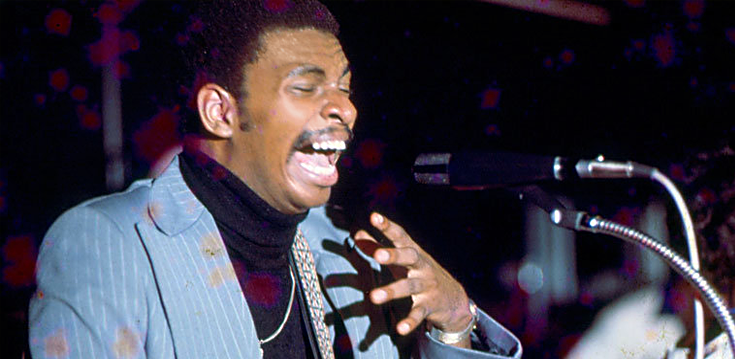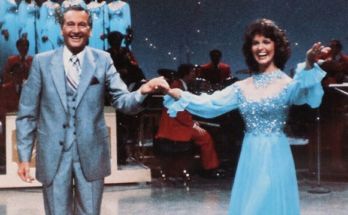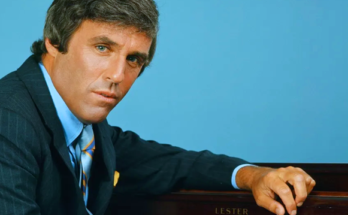

On October 6, 2021, the music fans of Wichita, Kansas were crushed to hear of the passing of local legend Rudy Love. But the fact that so comparatively few beyond the borders of the Sunflower State will know to mourn the man and his music today is a cruel twist of fate.
Rudy was born in Oklahoma in 1948, one of either 15 or 17 children (depending on which source you read) born to singing pastor Robert Love, Sr., who later moved the whole family to Wichita. Bob himself had a brush with fame when a song he co-authored and recorded with his partner Don Level — “Good Morning, Little Schoolgirl” — became a hit on Chess Records’ Argo sublabel in 1961. The song was subsequently covered numerous times by acts including the Yardbirds, but neither Bob nor Don ended up getting paid royalties for the song’s success — establishing a pattern of ripoffs and flim-flams that would go on to mark much of his son’s career.
Young Rudy was a prodigious singer, starting out like his old man in church groups with names like the Junior Canaanites and Junior Brotherhood. At age 17 he was invited by a cousin to travel north to Chicago and help write some material for a Little Richard album, which led to his meeting Ray Charles — an experience that electrified and deeply inspired the young musician. In short order his 13-piece group, The Company Soul, pulled up stakes in Wichita and traveled to Los Angeles in search of fame and fortune.
Then one day in LA, after a promising discussion with Lou Rawls, Rudy was literally just walking down the street when some music biz people he had previously met in Chicago happened to roll up on him in a limousine. Before he knew what was happening, he was taken to meet the owners of Canyon Records, who immediately signed him to a deal.
And what a deal it was. It may have sounded great on paper, but in the end it meant Rudy and his band would record a pile of original songs for the label, only to see his compositions farmed out to other artists — while he received little to nothing in the way of either credit or compensation for his work. For instance, his song “Your Love Is So Doggone Good” has been recorded by artists including Ray Charles, Esther Phillips, Isaac Hayes, the Whispers, the Soul Searchers and even hard bop stalwart Sonny Stitt, to the profit of others — but not Rudy.
But he didn’t let this bad luck stop him. He continued writing, recording and playing, and eventually took on a regular gig with Motowns South and West as a pilot vocalist, modeling lead singing parts for songs that would go on to be recorded by Alabama, Thelma Houston, Marvin Gaye, Ronnie Milsap, the Temptations and others. Additionally he became the de facto bandleader of Sly Stone’s band after the breakup of the classic Family Stone; Rudy’s voice is featured prominently across the whole High on You album from 1975.
Later he signed a contract with New York’s Calla Records, run by Nate McCalla — bodyguard and business associate of Roulette Records honcho (and well-connected mobster) Mo Levy. There Rudy dropped arguably his biggest single with the funky, stanky strip club anthem “Does Your Mama Know,” backed up with the infidelity slow jam “Housewife Blues.” But once again the bottom fell out under him as the label folded overnight just as Rudy and the Love Family released their second full-length LP as a group, This Song Is for You. (McCalla would later be mob-style executed, allegedly on Levy’s orders.)
Rudy continued shopping his songs, doing production work, writing arrangements, and guesting as studio singer/guitarist with artists such as George Clinton, New Riders of the Purple Sage, Van Morrison, Bobby Womack, Billy Preston, Bill Wyman and the Gap Band. His Kansas roots made him a facile musician across a wide swath of styles, and he was as comfortable playing country-western and rock & roll as R&B. Some of the hugest names in music recognized his talent and charisma, yet for all his hard work and accolades from within “the biz,” he was left lingering in the shadows.
Somewhere along the line it came to Rudy’s attention that the Company Soul demos he had cut for Canyon years before had been released secretly in England — falsely attributed to singer “Brother” Tyrone Davis. Even more bizarre, some of the earliest karaoke tracks floating around Hong Kong in the 1980s were in fact Rudy Love songs!
Through all the disappointment and drama, Rudy just kept his head down and continued doing his thing, recording and releasing singles and albums, playing gigs with various permutations of the Love Family, collaborating with playwrights and producers on stage musicals and other projects. His extremely talented son Rudy Love, Jr. stepped up to keep the family musical flame burning, too.
And then, thanks to the magic of sampling, some long-overdue paydays fell upon our hero. Hip-hop and R&B artists Dilated Peoples, Rick Ross, Mobb Deep and even His Royal HOVAness Jay-Z all crafted tracks around various of Rudy’s songs, finally earning him some ducats after all his years of struggle in the industry.
To put a cherry on top, 2018 saw the release of the “funkumentary” film This Is Love (viewable now in its entirety at Vimeo), which explicitly lays out the case for why Rudy Love ought to be a household name — and details the many bad breaks and double-crosses that prevented him from becoming one. Produced in part by Love Family superfan Mick Fleetwood, This Is Love is an entertaining, enlightening document that illuminates some of the darker passageways of the notoriously shady music biz as it tells the tale of how that machine exploits earnest and talented young artists.
Rudy’s moment in the sun was far too long in the making, and sadly, all too brief. He fell into ill health, and just this morning it was announced that Wichita’s favorite son — this gentle, humble, funny, talented, kind man of music — had succumbed to pancreatic cancer.
In memory of the man, Honk Journal has assembled a Spotify playlist of some of his most notable work, including recordings he wrote, produced, or on which he played/sang . And I’ll leave you with one last sweet memory of Rudy Love — his 2021 duet recording (with regional rock mainstay Piper Leigh) of the sweet, comfy Beach Boys nugget “Sail On, Sailor.” Here’s hoping all his sailing is smooth from now on. Rest In Power, Rudy Love!



